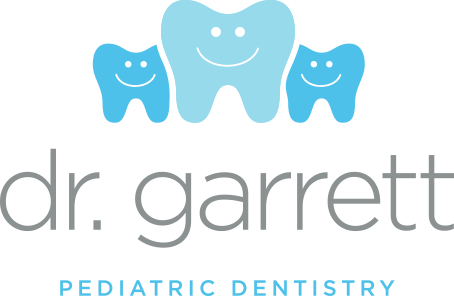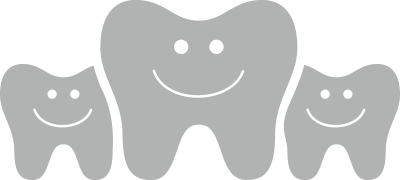Pediatric Dentistry
Preventive Care
The road to healthy teeth begins at your very first visit! Dr. Garrett provides a thorough examination and education, and gets to know each patient and family. X-rays, toothbrushing analysis, cleaning, fluoride and sealants are all part of our emphasis on prevention. As a board certified pediatric dentist, Dr. Garrett puts his experience to work identifying problems before they arise, and to start children and parents on a lifetime of good dental health.
Fillings, Crowns & Pulp Therapy
Cavities should be addressed, regardless of age. Dr. Garrett will explain filling options personally. Pulp therapy (pulpotomy), also called "children's root canal" or "nerve treatment," can be needed after a traumatic injury, or as a result of a cavity. The goal is to save the tooth. Crown options vary, and Dr. Garrett expertly works with zirconium crowns, among others. The comfort and safety of patients is always the priority. Nitrous oxide is a safe alternative to local anesthesia.
Specialized Treatment
As a board certified pediatric dentist, Dr. Garrett has extensive training and experience specific to children, including advanced diagnostic and surgical procedures, as well as pharmacology and general anesthesia. Special needs patients are welcome, as are trauma and emergency patients. Treatment can be provided in a hospital setting, if necessary. Dr. Garrett always is eager to examine new patients and consult with families in his Sacramento office.
Frequently Asked Questions
-
What is the difference between a pediatric dentist and a general or family dentist?
Some large dental practices in our area employ dentists who do not have any specialized training to treat children. As a pediatric dentist, Dr. Garrett completed two extra years of training specific to children following dental school.
As a pediatric dental resident, Dr. Garrett learned advanced diagnostic and surgical procedures, along with child psychology and clinical management, oral pathology, child-related pharmacology, radiology, child development, trauma management, special needs care, conscious sedation and general anesthesia.
-
When should I take my child to the dentist for the first exam?
As recommended by the American Academy of Pediatric Dentistry, your child should see a pediatric dentist when the first tooth appears, or before his or her first birthday. Decay is unlikely at such a young age, but parents benefit most from guidance provided. Cavities are preventable!
-
Are baby teeth really that important? Why should I fix baby teeth if they are just going to fall out?
Primary or "baby" teeth help children speak clearly and chew naturally. They also aid in forming a path permanent teeth follow when they are ready to erupt. Extracting a baby tooth due to infection almost always results in crowding later on.
-
How should I clean my child’s teeth? What kind of toothpaste should I use?
At 3 to 6 years old, toothpaste should be increased to a pea-sized amount, and the child should be assisted with brushing. Children should not swallow excess toothpaste. The small amount of fluoride in the toothpaste will help fight cavities.
Starting at birth, clean your child’s gums with a soft infant toothbrush or cloth and water. When teeth erupt, parents should use a tiny smear of fluoride toothpaste to brush baby teeth twice daily with a soft, age-appropriate toothbrush.
Many parents have a difficult time when their children don't cooperate at toothbrushing time. I tell parents that doing the best they can is better than doing nothing.
-
What do I do if my child knocks out a permanent tooth?
Remain calm! And then find the tooth. If you can, hold the tooth by the crown and try to put it back in the socket. If that is not possible, then put the tooth in a glass of milk.
Regardless, your child should be seen by a dentist as soon as possible. The sooner the tooth is implanted, the better its chance for survival. Baby teeth are never re-implanted.
-
Is laughing gas/nitrous oxide safe? What can I expect?
Nitrous oxide is a safe and easy way to help some patients relax and be comfortable during dental appointments. When administered for dental treatment, it is always given at safe levels and mixed with oxygen. Children wear the nitrous hood over their noses for the duration of the appointment and remain awake. After the dental procedure, your child will breathe pure oxygen and will not go home sleepy or drowsy. Because it is a gas, the dosage is easy to customize and adjust for each patient.

